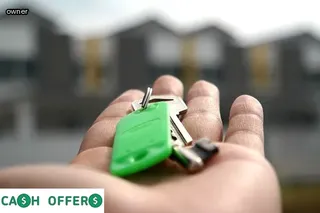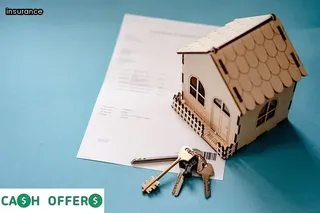When selling a house in Virginia, it is important to understand the basics of the real estate market in the state. Knowing local laws and regulations can help ensure a smooth transaction and guarantee that both parties abide by all legal requirements.
It is also beneficial to familiarize yourself with relevant taxes, including transfer tax and use tax, as well as any applicable stamp tax. Additionally, it may be necessary to obtain a certificate of occupancy from the local government before closing on the sale.
Understanding zoning regulations is also key when selling a house in Virginia since some properties may not be suitable for certain uses. Furthermore, it is important to carefully review all paperwork associated with the sale and make sure both parties are clear on their respective rights and obligations.
Finally, research comparable properties to get an idea of what other similar homes have sold for recently so that you can determine a fair price for your property.

When it comes to selling a house in Virginia, listing agreements are one of the most important things to understand before going through with the sale. It's critical to be aware of all the necessary documents needed for a listing agreement, such as a seller disclosure statement and property condition disclosure form.
In addition, you'll need to decide how much commission you're willing to pay your real estate agent for their services. Consider talking to multiple agents and comparing their fees and services so that you can find the best fit for your needs.
Additionally, consider having an attorney review any contract or legal document related to the sale before signing on the dotted line. Being prepared with all of this information will help ensure a smooth sale process.
When selling a house in Virginia, it's important to make informed real estate disclosures. This includes disclosing any known problems with the home or any environmental hazards that may be present.
Buyers will likely do their own inspections, but sellers need to be proactive and disclose anything they know about the property ahead of time. This can include past pest infestations, foundation issues, or other structural issues that may have existed in the past.
Additionally, it's important to have an understanding of local regulations and zoning laws when selling a property as buyers may ask about certain restrictions that could affect their future use of the house. Knowing this information before putting a home up for sale can help ensure smooth negotiations and a successful closing.

Escrow is an important part of the process when selling a house in Virginia. It is an arrangement that holds funds or documents in trust until certain conditions are met.
When selling a house, the escrow account is handled by a neutral third party such as an attorney or title company to ensure that all terms of the sale are met before any money changes hands. The seller will deposit the deed to the property into escrow, while the buyer pays their earnest money and additional funds needed for closing costs.
Once all of the paperwork is complete, including title search and insurance, then both parties can sign off on the agreement and finalize the transfer of title from seller to buyer. At this point, the buyer will receive their new deed and make payment on any remaining balance due to close out escrow.
The escrow agent will ensure that all necessary funds have been received and disbursed accordingly prior to releasing ownership of the home from seller to buyer.
The closing process for selling a house in Virginia is an important step in the real estate transaction. It is the final exchange of money and documents that officially transfers ownership from the seller to the buyer. As such, it is important to understand what steps are involved in closing on a property in Virginia.
The most common components of the closing process include title search, deed preparation, transfer of funds, review of loan documents, tax assessment and payment, execution of final documents and recording of deed. All parties must adhere to Virginia state laws when it comes to fulfilling their obligations as part of this process. The title search is conducted by a title company or attorney who will ensure that there are no liens or judgments against the property that could potentially be passed on to the new owner.
The deed preparation involves drafting all necessary legal documents related to transfer of ownership including mortgage notes if applicable. Transfer of funds between seller and buyer occur at closing which may involve a bank wire or check depending on the terms agreed upon in advance. Loan documents will be reviewed by lender prior to closing and any discrepancies must be addressed before closing can proceed.
Tax assessment and payment are handled by both sellers and buyers with each paying their share based on dates specified in contract. Finally, all necessary final documents will need to be executed by all parties present at closing as well as recorded with local courthouse for officially transferring ownership from seller to buyer.

When selling a house in Virginia, consulting with a real estate attorney is one of the most important steps. An experienced real estate attorney can provide invaluable advice on the best way to structure the sale and ensure that all necessary documentation is properly completed and filed.
They can also advise on any potential legal issues that may arise, such as boundary disputes or zoning factors. Additionally, they can help sellers understand their rights and obligations when it comes to selling a home in Virginia, and answer any questions they have about the process.
Consulting with an attorney early in the process can be critical in helping to avoid costly mistakes later on. Experienced attorneys know how to protect sellers’ interests while complying with applicable laws and regulations, so working with one can provide peace of mind during this complex process.
Selling a home in Virginia is an exciting but complex process. It's important to consider the pros and cons of selling during different times of year in order to maximize your profits.
In the spring, homebuyers may be willing to pay more for a house as they prepare for summer moves. However, competition can be fierce as there are typically more homes for sale during this period.
During the winter months, there tend to be fewer buyers looking for homes and slower market activity overall. On the plus side, motivated buyers may be more inclined to make an offer because there are less options available.
Summer is a great time to sell if you're hoping for quick turnaround; however, you may find that buyers who are searching during this season are less likely to make an offer at full price since they have plenty of other choices. No matter what time of year you choose to sell your home in Virginia, it’s essential that you work with an experienced and knowledgeable real estate agent who can help guide you through every step of the process.

When it comes to selling a home in Virginia, one of the most important things to consider is the cost. It's essential to have an accurate understanding of what expenses you may incur throughout the process.
The exact amount you'll need to spend will depend on factors such as the size and condition of your home, but there are some common costs associated with selling a house in Virginia that you should be aware of. These include real estate commissions, transfer taxes, loan payoff charges, title insurance fees, closing costs and repair costs.
Real estate commissions are typically paid by the seller and can range from 5-7% of the total sale price; while transfer taxes are based on different percentages depending on local laws. Loan payoff charges are also paid by the seller; they cover any remaining balance you owe against your mortgage when transferring ownership.
Title insurance fees help protect both buyers and sellers in case of discrepancies with land titles; while closing costs cover administrative tasks like document preparation and notary fees. Lastly, repair costs may arise if improvements are needed before listing your property for sale.
It's important to have a realistic estimate of what expenses you may face when selling a house in Virginia so that you can adequately prepare financially ahead of time.
When selling a house in Virginia, it is important to make sure that you are aware of all legal requirements and considerations before beginning the process. This includes understanding the paperwork involved in closing a sale, such as a deed, deed of trust, and other documents like an affidavit of title.
You must also be aware of certain taxes and fees associated with the sale of your home. Additionally, you should check local regulations to make sure that any renovations or repairs you have made meet all applicable codes and standards.
Before listing your home for sale, do your research to ensure that you are familiar with all relevant laws regarding real estate transactions in Virginia. Lastly, it is vital to be mindful of any contingencies that may need to be met in order to close on the sale.
Being informed about these legal requirements and considerations can help make sure that your home sells quickly and smoothly.

When looking to sell a house in Virginia, it is important to consider all available options. A real estate agent is the most popular choice for selling a house, as they have the expertise and resources needed to help guide sellers through the process.
However, homeowners may also choose to take on the task themselves by listing their property on websites such as Zillow or Redfin. Additionally, there are multiple ways to market a property, from open houses and yard signs to online ads.
Regardless of which route is chosen, it is important to understand Virginia’s laws surrounding contracts and disclosures when selling a home. Furthermore, it is essential that all paperwork related to the sale be filed with the appropriate local government authorities and that taxes be paid in a timely manner.
Finally, considering any renovations or repairs that need to be done prior to listing can greatly increase the chances of getting a good offer on one’s home. Taking these steps will ensure that selling a house in Virginia goes as smoothly as possible.
Navigating the negotiation process when selling a house in Virginia can be difficult and stressful. It is important to understand the offers, counteroffers, and acceptance process before beginning negotiations.
To start, it is helpful to research market trends in the area so that you have an informed understanding of what your home may be worth. Once you have an initial asking price, you can begin accepting offers from potential buyers.
When evaluating offers, consider factors such as how quickly a buyer can close and their ability to pay. If necessary, you can submit counteroffers with different terms or prices before coming to an agreement.
The negotiation process should continue back and forth between both parties until all conditions are met and an offer is accepted. Having realistic expectations throughout the process will help guide your decisions and make the negotiation process smoother for both sides.
Ultimately, it is important to remember that you are ultimately responsible for deciding when to accept an offer or move on from potential buyers who cannot meet your requirements.

When selling a house in Virginia, it is important to understand the escrow process. Escrow is a legal agreement between two parties, usually the buyer and seller, where money or property is held by a neutral third party.
In the case of home sales, escrow is used to ensure all conditions agreed upon in the purchase agreement are met before closing. During this time, buyers and sellers have certain responsibilities that must be fulfilled in order for the sale to go through.
Buyers must provide proof of funds or obtain financing as well as order any necessary inspections and secure insurance. Sellers must disclose required information on their property such as lead paint and other hazardous materials before closing.
Once all of these steps are completed, an escrow company will take over and handle the details until closing day arrives. The escrow officer will review contracts, collect needed documents from each party, and communicate with lenders to ensure everything is set for closing day.
After all paperwork has been finalized and signed by both parties, payment will be released from escrow to complete the transaction. Understanding how the entire process works ahead of time can make selling a house in Virginia much smoother for all involved.
Selling a house in Virginia is no small task and involves many steps before the closing process can begin. It's important to understand the laws and regulations governing real estate transactions in Virginia, as well as any additional contractual obligations or rights that may be applicable to you.
After you have taken the necessary steps to prepare your home for sale, it is time to begin the closing process. In Virginia, there are certain procedures required for both buyers and sellers that must be followed when entering into a real estate transaction.
A step-by-step guide of what you need to know beforehand includes verifying that all documents are properly signed, obtaining title insurance, submitting information related to liens or mortgages on the property, obtaining an appraisal of the property's value, and disbursing funds from the escrow account. It is also important to consider any additional services such as home inspection or termite inspection prior to closing.
Once all paperwork is finalized, a settlement statement will be provided which outlines all expenses associated with the sale of your home. The closing process in Virginia requires both parties present at a mutually agreed upon location before finalizing the transaction and transferring ownership of the property.

Selling a house in Virginia is a major life event, and it’s important to understand all the details involved before beginning the process. One of the options for selling a home is to go through a For Sale by Owner (FSBO) transaction.
This involves taking on all aspects of the sale yourself, from pricing your property and marketing it to managing negotiations and closing the deal. To ensure you are well-prepared for an FSBO transaction, there are several key steps you should take.
First, research your local real estate market to determine a competitive list price for your home. Next, create marketing materials such as flyers or online ads that highlight features of your home and target potential buyers.
Additionally, you will need to facilitate showings of your property and handle any offers that come in. Finally, if accepted, you will need to help prepare documents and manage the closing process with assistance from a real estate attorney or title company.
With careful planning and attention to detail, successfully navigating an FSBO transaction can provide an ideal solution for selling your Virginia home quickly and efficiently.
Selling a house in Virginia without the assistance of an agent can present some advantages and disadvantages. One of the greatest advantages is that you, as the seller, keep all profits from the sale instead of sharing them with an agent.
You also have greater control over when to list your home and how much you are willing to accept for it. On the other hand, if you choose to go through this process alone, there are certain disadvantages that you should consider.
Without an agent, it can be difficult to find potential buyers and market your home in an effective manner. You may also need to negotiate with buyers on your own, which can be a challenging process.
In addition, paperwork and legal matters must be handled solely by yourself; if they are not done correctly, they could cause major issues later on down the line.

When it comes to selling a house in Virginia, it's important to know the legal requirements before you begin. One of these requirements is whether or not you need to hire a lawyer.
In Virginia, it is possible to sell your house without hiring a lawyer; however, there are certain situations where it is recommended that you do so. For example, if you are selling your house through an auction or if you have any legal disputes with the buyer, then having a lawyer present throughout the process can be beneficial.
Additionally, some real estate contracts require the presence of an attorney in order for them to be legally binding. A qualified lawyer can also provide valuable advice on how best to navigate all the paperwork and regulations related to selling a house in Virginia.
Ultimately, while it is possible to sell a house without the help of an attorney, seeking legal counsel may save time and money in the long run.
When selling a house in Virginia, it is important to prepare ahead of time in order to ensure that you get the best financial outcome. Setting a reasonable price point for your home is key; researching the market and considering factors such as location, size, and condition can help you determine an appropriate asking price.
Maximizing profits when selling your home requires understanding current trends in the area, pricing accordingly, and making sure your house looks its best by staging it and making necessary repairs or upgrades. Working with a real estate agent can be beneficial; they have knowledge of the local market as well as expertise in negotiating contracts and helping with paperwork.
Relying on their advice and strategies when it comes to advertising, holding open houses, and closing deals can be instrumental in getting the most out of your sale.
Selling a house in Virginia can be a daunting task, especially if you choose to go it alone. With the right preparation and understanding of the process, however, it is possible to successfully sell your house on your own.
To begin, you must understand the market conditions in Virginia; this includes researching comparable houses that have recently sold in the area and determining what price range to list your home at. Additionally, you should make sure that all paperwork related to selling a house is properly completed and filed with the local government authority.
Once these steps are taken care of, focus on marketing your property; this may include creating an effective online listing or hiring a real estate agent who specializes in Virginia homes. Finally, when you have received an offer from a potential buyer, review all documents carefully before signing any contracts or agreements.
By following these steps, you can ensure that selling your house on your own in Virginia will be a smooth and successful experience.

Do you need a realtor to sell a house in Virginia? For many people, the answer is yes. Hiring a professional real estate agent can be extremely beneficial when it comes to selling your home in VA.
A realtor can help you navigate the various laws and regulations that come with selling a house. They will also be able to list your property on the local Multiple Listing Service (MLS) so potential buyers can view it.
Additionally, they can provide valuable advice on pricing, staging, repairs, renovations, and much more. While you may be tempted to go the FSBO route and save money by doing it yourself, enlisting the help of an experienced realtor is often worth it in the long run.
Before putting your house up for sale in Virginia, it's important to understand what you need to know about the closing process. One of the key questions to ask yourself is whether or not you will need a closing attorney in VA.
In general, having a closing attorney is recommended as they can help guide you through the entire process and ensure that both parties are satisfied with the transaction. Hiring an experienced real estate lawyer can provide you with peace of mind and help protect your interests throughout the sale.
A closing attorney can also ensure that all documents are filled out correctly, keep track of deadlines and make sure that any liens or outstanding issues are handled properly. Furthermore, they will be able to identify any potential problems and work together with other professionals such as appraisers or home inspectors to ensure that everything runs smoothly and quickly.
Ultimately, hiring a closing attorney in VA is a smart move when selling a house and can save you money in the long run.
When selling a house in Virginia, it is important to know if you are liable for any taxes. In Virginia, tax laws state that any profits made from the sale of a home may be subject to taxation.
For example, if you purchased your home for $200,000 and sold it for $250,000, you would be liable for taxes on the extra $50,000. It is also important to note that capital gains taxes may apply when selling a house in Virginia.
The amount of taxes owed depends on factors such as how long you owned the property and whether any improvements were made prior to sale. Before deciding to sell your Virginia home, it is best to contact an accountant or tax specialist who can help you determine what type and how much tax will be due after the sale of your property.
A: While not required, it is highly recommended that you consult with a lawyer prior to selling your house in Virginia. Additionally, it is important to work with a qualified real estate broker or agent, as they can help guide you through the process and provide guidance on areas such as local regulations and taxes.
A: Yes, it is recommended to obtain the services of a law firm when selling a house in Virginia in order to ensure that all creditor obligations are met and escrow funds are handled according to state laws.

A: Yes, you should hire a lawyer to ensure that your ownership interest in the property is transferred properly through a Living Trust and that you pay the appropriate flat fee when selling your house in Virginia.
A: Yes, it is recommended that you consult with a lawyer when selling your home in Virginia in order to ensure that all Homeowner's Association fees and credit warranties are properly handled.
A: While it is not required, it may be beneficial to consult with a lawyer when selling your house in Virginia. A lawyer can help ensure that the grantor (seller) is properly represented and that all of your rights as the homeowner are protected throughout the transaction.

A: Yes, it is recommended that you hire a lawyer when selling your house in Virginia to ensure that all applicable laws are followed and that you use the most up-to-date technologies, photography, and short sale options available.
A: Yes, it is recommended that you hire an experienced real estate lawyer to oversee the sale of your house in Virginia. The lawyer can provide legal advice and help you navigate the Good Faith Estimate process and make sure that all of the necessary paperwork is in line with the National Association of Realtors guidelines.
A: Yes, it is highly recommended that you use a lawyer to help you with the financial aspects of selling your house in Virginia, such as providing you with a Good Faith Estimate and helping you manage your finances. This includes making sure that any mortgages or other loans are properly paid off and that your email address and other personal information is kept secure.

A: Yes, it is highly recommended to hire a lawyer to ensure that your rights as a seller are protected when selling your house in Virginia, whether through Video or Phone. A lawyer can help make sure that the Caveat Emptor and Brokerage laws are properly followed during the sale.
A: Yes, it is recommended to seek the assistance of a lawyer to ensure that all Probate, Plumbing, and Northern Virginia Homeowner's Association fees are properly handled when selling a house in Virginia.
A: Hiring a lawyer is not necessary to determine the market value of your house, but they can be beneficial in providing legal advice and assistance with creating an inventory of items included in the sale. Additionally, if you are considering selling your house to an iBuyer, consulting with a lawyer can help ensure that all legal obligations are met.

A: Yes, it is advisable to consult with a lawyer when selling your house in Virginia to ensure that your rights of way, easements, divorce settlements, and other consumer protections are properly taken into account.
A: The average cost of a lawyer to help you sell your single-family home in Virginia is typically between $500 and $1,500. This includes consultation fees and legal paperwork.
A: Yes, it is recommended to have a lawyer involved when selling your house in Virginia to ensure that any risks associated with Radon Gas and Property Appraisers are properly addressed and taken into consideration.

A: Yes, it is recommended to hire a lawyer to help ensure that all applicable Property Taxes are properly pro-rated and paid when selling a house in Virginia.
A: Yes, it is strongly recommended that you seek the assistance of a lawyer to make sure that your Mortgage Insurance, Market Analysis, and License requirements are properly taken care of when selling your house in Virginia.
A: Yes, it is recommended that you hire a lawyer to help you navigate the legal aspects of selling your house in Virginia. A lawyer can also provide advice on any potential disputes between yourself and the buyer, such as ensuring that all closing costs are paid in full and negotiating any necessary changes to the existing mortgage. Additionally, a lawyer can help you work with a real estate agent to ensure that your home inspection fees are properly paid and your rights are protected throughout the sale process.

A: Yes, it is recommended that you hire a lawyer to ensure that all of your property taxes are paid and properly handled when selling your house in Virginia.
A: It is not necessary to hire a lawyer to assist you with investing in your house in Virginia. However, it may be beneficial to consult with a legal professional if you are unsure of the implications of any investment decisions or if you need guidance on how to structure an agreement between yourself and any potential investors.
A: Yes, you should consult with a lawyer to ensure that all of your Internet, Interest Rate, and Insurance Policies are properly handled when you sell your house in Virginia.